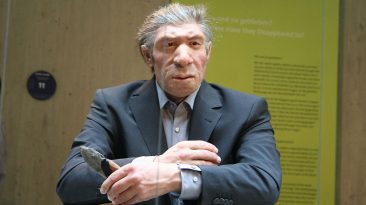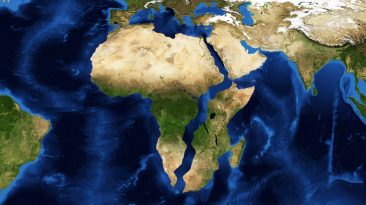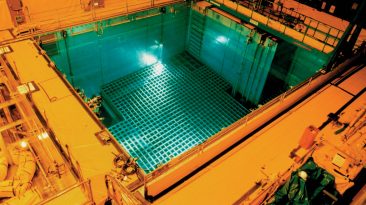What if one day everyone on Earth pulled their forks away from their steaks and turned vegan?
Either for the sake of a healthier lifestyle, to alleviate animal suffering, or to fight global warming – everyone found their own reason to say “no” to a juicy burger…a fluffy omelette…or a cheesy pizza.
Even ice cream would make the no-no list. Would the vegan diet save the planet from climate change? Would this improve your health? What would happen to all those cattle?
What is a Vegan?
According to the Vegan Society, a vegan is defined as,“… a way of living which seeks to exclude, as far as is possible and practicable, all forms of exploitation of, and cruelty to, animals for food, clothing or any other purpose.” Vegans avoid eating animal products such as meat, dairy, eggs and honey. Many vegans also avoid products made from animals such as leather, and products tests on animals such as makeup.
Strict veganism can be very difficult to maintain. Animal products in common use include albumen, allantoin, beeswax, blood, bone char, bone china, carmine, casein, castoreum, cochineal, elastin, emu oil, gelatin, honey, isinglass, keratin, lactic acid, lanolin, lard, rennet, retinol, shellac, squalene, tallow (including sodium tallowate), whey, and yellow grease. Some of these have vegan alternatives, but many do not. Philosopher Gary Steiner argues that it is, in fact, impossible, because animal use and products are “deeply and imperceptibly woven into the fabric of human society”.

As of 2018, there are 20 million vegans in the U.S. alone – 6 times more than there were in 2015. Tofu is filling in for meat in restaurant menus. There has been a 600 percent increase in American vegans in the last three years.
Dairy-free milk alternatives are pushing their way onto supermarket shelves. Non-dairy milk sales in the United States increased by 61%, from 2012 to 2017. What was once a radical diet choice is becoming mainstream. However, that doesn’t stop the scale of the meat industry. Every hour in the United States 500,000 animals are killed for their meat.
Did you know? Food produced by animals is responsible for a quarter of all greenhouse gas emissions. Most of that comes from cows. Every year, the world’s cattle population leaves a carbon footprint equivalent to CO2 emissions of every car, train, ship and aircraft in the world put together. If one day, all of humanity went vegan, would a veggie-based diet save the world? Wait, how exactly does livestock contribute to global warming?
Veganism and the Environment:
There’s about 1.5 billion cows in the world, and each cow releases up to 120 kg (265 pounds) of methane per year. On the climate change scale, methane’s negative effect is 23 times higher than carbon dioxide’s. Four-fifths of agricultural emissions arise from the livestock sector.

Estimates on greenhouse gas emissions attributable to animal products range from 18% to 51% of total global emissions. Much of that results from the environmental impact of meat production. Some of the environmental effects of meat production include fossil fuel use , methane gas production, effluent waste, and land and water consumption.

On top of that, cattle take as much as two-thirds of all the agricultural land on the planet. If we all went vegan, we’d use most of that pastureland for restoring forests and grasslands to help reduce carbon dioxide in the air. We’d start growing more crops to fill the gaps in our food supply. Livestock-related gas emissions would drop by 70%.
Water pollution caused by animal manufacturing is a problem in developing and developed problems alike. Among other countries, the United States, Canada, India, Greece, and Switzerland are all facing water pollution issues due to animal waste. These issues could be avoided by the appropriate use of manure. Apparently, one vegan meal Is capable of saving 2,500 gallons of water. It takes 2,500 gallons of water to produce one pound of beef.

But what would happen to all those farm animals? With no demand for grilled chicken and roast beef, billions of animals would be slaughtered or abandoned. Some animals, like sheep and pigs, might be able to return to the wild, but their numbers would drop due to predators.
Others though, like broiler chickens, couldn’t survive in the wild as they are so far removed from their ancestors. Their best chance might be in sanctuaries where they would be taken care of until they die out.

Human Beings and Veganism:
Your local butcher would have to find another job. And so would millions of farmers. They could start growing more crops, or restoring forests. However, this might also be beneficial, because many meat industry workers face poor conditions, health risks, are underpaid, and can face considerable dangers. Many American meat industry factories also underpay and mistreat migrant workers.
But on a large scale, rural communities that used to supply you with milk, eggs and meat would face significant unemployment. Developing countries who built their lives and trades around livestock would deal with major economic disruption.
Human Health and Veganism:
But everyone would become a little bit healthier… Or would we? Adopting vegan diet doesn’t automatically make you a healthy eater. Vegans often miss out on vital nutrients. They often don’t get enough calcium, iron, vitamin D, zinc, vitamin B12 and omega-3 fatty acids.
Since meat, eggs and cheese would no longer be served as a perfect source of protein, you would have to eat a lot of soy, beans and lentils. But with a proper diet, we’d suffer less from coronary heart disease, stroke and diabetes. However, studies have shown that most people are overconsuming protein anyway. A study by the Huffington Post found that those who follow a vegan diet tend to have a lower rate of cancer.
Global mortality rate would drop by up to 10%. This would mean 8 million less deaths per year and up to $1 trillion saved on healthcare and lost working days annually.
But not in developing countries, where over 2 billion people already face massive undernourishment. Without meat, for them, things wouldn’t get healthier, they’d get worse. While this is true, it is ultimately based in the unequal distribution of resources. Additionally, meat production takes over a lot of land which could be used for healthier, more readily available, and just more generally food production. Studies indicate that a varied vegan diet requires about a third of the land needed for conventional Western diets. 3.5 billion humans could be fed with the food used to raise livestock for slaughter.

However, there are other health implications to veganism. Over eighty percent of food poisoning cases are due to infected meat. According to the American Dietetic Association (ADA), people who follow a vegan or vegetarian diet tend to display lower blood cholesterol, lower blood pressure, less chance of getting colon and prostate cancer, and a decreased rate of Ischemic Heart Disease. And although people are already consuming too many antibiotics for their own health, (about 3 million pounds annually in the U.S. alone), animals receive even more. Livestock are fed up to 17.8 million pounds a year, and this number could actually be less than what is really being given to them. Antibiotics used in animals are increasing antibiotic resistance in human beings, which helps cause superbugs.
Fish Are Friends, Not Food:
Animal welfare is also a concern when considering veganism. A 2015 Gallup survey of Americans found that 32 per cent believe animals should enjoy the same rights as people, up from 25 per cent in 2008. Many people hold the view that animals should be treated humanely, even when they are being raised for human consumption.
Another, more extreme view, most succinctly summarized by professor Gary Francione, is that all sentient beings should have the right not to be treated as property, and that adopting veganism must be the baseline for anyone who believes that non-humans have intrinsic moral value.
The famous Jane Goodall has said, “farm animals feel pleasure and sadness, excitement and resentment, depression, fear and pain. They are much more sensitive and intelligent than we ever imagined.”

We don’t really know how most animals feel or think, not really. However, we do know that they feel pain, and many of our methods of meat production can cause them a ton of it (not to mention it leads to their inevitable demise). Animals also don’t get any agency in this process – humans have a choice to eat meat or not, but animals don’t get to choose whether or not they are eaten.
To Vegan, or Not To Vegan:
Having the entire world go vegan might be a little extreme. But keeping foods produced by animals in our diet means we will eventually have to deal with the gas emissions. Luckily for those hooked on meat, clean solutions to reduce emissions from the livestock industry already exist. All that’s left is to implement them.
There’s also a little thing called balance. According to a survey by Nielsen, more than 39% of consumers in the United States and 43% in Canada say they are trying to incorporate more plant-based foods into their diet. Movements like Meatless Mondays are encouraging people all over the world to cut back on their meat consumption.
What about you? Would you say “no” to your meatball pasta tonight?

Sources
- What would happen if everyone went vegan?
- What would happen if the world suddenly went vegan?
- Can eating less meat help reduce climate change?
- Veggie-based diets could save 8 million lives by 2050 and cut global warming
- Analysis and valuation of the health and climate change co-benefits of dietary change
- Plant-based diets could save millions of lives and dramatically cut greenhouse gas emissions
- 10 Fantastic Vegan Facts
- Myths and facts about veganism
- What is veganism?
- Why the Global Rise in Vegan and Plant-Based Eating Isn’t A Fad
- I’m Vegan: Gary Francione
- Animals and the Limits of Postmodernism
- Apocalypse Pig: The Last Antibiotic Begins to Fail
- The Inner World of Farm Animals
- A Vegan Diet (Hugely) Helpful Against Cancer
- 2,500 Gallons All Wet?
- Vegan and plant-based diets use less resources
- Hyperlink to source goes here



























